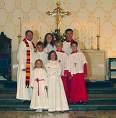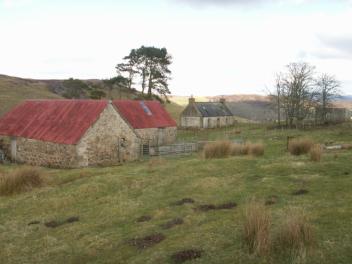Despite the challenges of the North and the Presbyterian culture, there can be new pockets of witness, like Dingwall, where I had a vision for a church way back in 1982,- but the work does need commitment.
The roving activities of someone building relations is important in addressing the Baptist cause. A lack of relationship will surely reduce any possibility of growth. If we are there at the start of the new work in Fortrose then we have an opportunity to help it grow and add value!
Strategically there is lots to consider in the Highlands if looking at a Baptist increase in Witness.
Firstly What is there to be done where might the focus be?
Monthly mass worship in different areas?
A quasi church that accommodates some who are members of other churches.
An electronic fellowship to link those with distance difficulties.
What skills are required.
Who are key people with a vision and contacts.
What sort of budget is required to move forward.
Who will fund such a plan.
Who has the commitment for year on year work.
There is a real difference in church life between the Highlands and the Central belt.
Few appreciate the differences and culture that still exists in the Highlands. Nevertheless. the Baptist witness still has an opportunity to captivate people who are not so drawn to a Presbyterian church form.
Concluding thought
In a wide spread area it is difficult to pull relationships to have a sense of community in church life. There is a difference between a few Christians getting together regularly and a group wishing to constitute as a church.
A Baptist witness in the Highlands needs to have a clear strategy taking into consideration the Highland culture and investing resources in a long term work with mini “splashes“ as a way of promoting both the Kingdom and Baptist Union.
Work may not simply rise up from one corner, and therefore the personnel all need to be flexible in “co-coordinating” work rather than “pinned” to a specific geographical area. I have observed that North folks like to see continuity of personnel and a 7 year plan headed by a “known” person will have a good kick start effect on the work.
In my time rubbing shoulders with various Free churches in the Highlands there are many active people with a measure of Baptist conviction but found in their parents Church which is not Baptist.
What is needed is a concerted group effort assisted and supported by neighbouring Baptist Churches to address the only alternative to Presbyterianism in the Highlands. Churches be they small, who have recently be created tend to affiliate or take pastor leading from those who they know.
A Baptist increase presence in the Highlands could encourage groups to grow and in turn constitute to a Baptist fellowship. I sense if we are not there at the beginning we will never be able to help.
Finally I would encourage any strategic plan to be most of all encouraging groups to “listen to God” All leaflets and correspondence need to be measured against this observation. Baptists have taken 250 years to conclude their theology,new churches are only on the road to discovery. However right from the start Baptist understanding should be incorporated and I am sure that this “fresh to the hearers” approach will strike a warm cord.
A feedback session from Church representatives from neighbouring Baptist churches would be a good starting point to formulate a strategy, a plan, and the implementing of a blessed work.
May God add to our numbers and maturity as we seek his face.
 I am delighted with the beginning of the questionnaire period. It will take a bit of time to accumulate feedback. Already had a response from south London! ( not quiet Highlands) so that comes out of the pot. It will take a few minutes, so sit down take 5, and help me gather some information.
I am delighted with the beginning of the questionnaire period. It will take a bit of time to accumulate feedback. Already had a response from south London! ( not quiet Highlands) so that comes out of the pot. It will take a few minutes, so sit down take 5, and help me gather some information. 




 On Saturday I came across my first sighting of an adder the poisonous viper found in the Highlands more so when Spring turns to Summer.
On Saturday I came across my first sighting of an adder the poisonous viper found in the Highlands more so when Spring turns to Summer.
